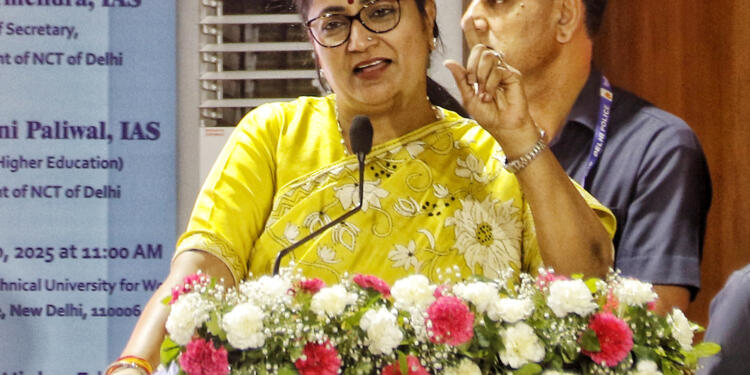As Delhi Chief Minister Rekha Gupta completed her first 100 days in office, ushering in a new phase in the city’s political and administrative landscape. Succeeding the long-standing Aam Aadmi Party (AAP) government, Gupta’s tenure so far has been marked by a proactive approach focused on revamping essential public services, boosting infrastructure, and restoring administrative transparency.
Gupta’s government made a notable entry into the public health sector by introducing several key facilities at Lok Nayak Hospital. A state-of-the-art medical genetics unit has been launched, providing specialized care for patients with rare and hereditary conditions. This unit represents a step forward in offering advanced diagnostics and long-term treatment plans for those with complex genetic disorders. In addition, a lactation support center has been established to cater to the nutritional needs of newborns, especially those born prematurely or with health complications. This center offers both guidance and access to donor breast milk, which can be crucial in preventing infections and promoting early recovery.
A third major addition is a new laboratory equipped with rapid diagnostic technology that reduces the time required for detecting serious infections like HIV and hepatitis. Previously, test results could take weeks; the new system delivers accurate results within days, improving both patient outcomes and safety in blood transfusions. In tandem with these developments, the government has announced plans to expand hospital capacity, aiming to surpass global standards in hospital bed availability per capita.
On the economic front, the Gupta administration unveiled a ₹1 lakh crore budget for the fiscal year 2025–26, a significant increase over previous years. Education received a major boost, with more than ₹19,000 crore allocated to upgrade public schools and provide academic support programs, including government-sponsored coaching for competitive examinations. Healthcare also remained a top priority, with nearly ₹13,000 crore dedicated to expanding and modernizing public hospitals and wellness centers.
The budget also outlined major financial support for women through the Mahila Samriddhi Yojana. Under this initiative, eligible women aged 18 and above will receive a monthly stipend of ₹2,500, aimed at promoting financial independence and gender equity. This policy is part of a broader push to ensure greater inclusion and support for women in both household and professional spaces.
In the area of public utilities and environmental sustainability, the administration has begun significant projects to improve Delhi’s water systems. Around ₹900 crore has been earmarked for water infrastructure, including ₹500 crore specifically for cleaning and rejuvenating the Yamuna River. The project includes the construction of decentralized treatment units and upgrades to existing facilities to manage waste more effectively. To further ensure water equity, the government has planned the installation of smart meters and improved monitoring systems, with investments totaling ₹1,500 crore to reduce wastage and theft.
Social welfare also features prominently in Gupta’s early governance agenda in Delhi. A task force has been created to draft comprehensive protection policies for gig economy workers, a group that has long operated outside formal employment safeguards. Proposed benefits include insurance coverage of up to ₹10 lakh for life and ₹5 lakh for accidents—benefits that, if implemented, would mark a first for many self-employed and freelance workers in the city.
Additionally, Delhi has begun implementing the Ayushman Bharat health insurance scheme with additional state funding. The Gupta government has pledged a top-up of ₹5 lakh on the standard coverage, bringing the total to ₹10 lakh per family per year. This is expected to reduce financial strain for lower-income households during medical emergencies.
Politically, Gupta’s approach has emphasized institutional accountability. One of her administration’s earliest moves was to place before the Legislative Assembly several audit reports that had been delayed for years. By releasing 14 reports from the Comptroller and Auditor General (CAG), Gupta signaled a break from past practices and a renewed focus on legislative transparency.
Throughout her early months in office, the Chief Minister has often contrasted her leadership style with that of her predecessors. She has openly criticized the previous government for prioritizing media visibility over measurable impact. In speeches and policy discussions, she has reiterated a commitment to substance over spectacle—a philosophy summarized by her frequently used slogan: “kaam pe vishwas, naam pe nahin” (belief in work, not in fame).
Now at the 100-day mark, Rekha Gupta’s administration appears committed to a results-oriented governance model in Delhi. From improving public health systems and education to investing in environmental reforms and social protection, her policies suggest a deliberate shift toward long-term development goals. While the road ahead will undoubtedly bring its own challenges, the groundwork laid in these initial months sets the stage for a potentially transformative tenure in the capital.
























